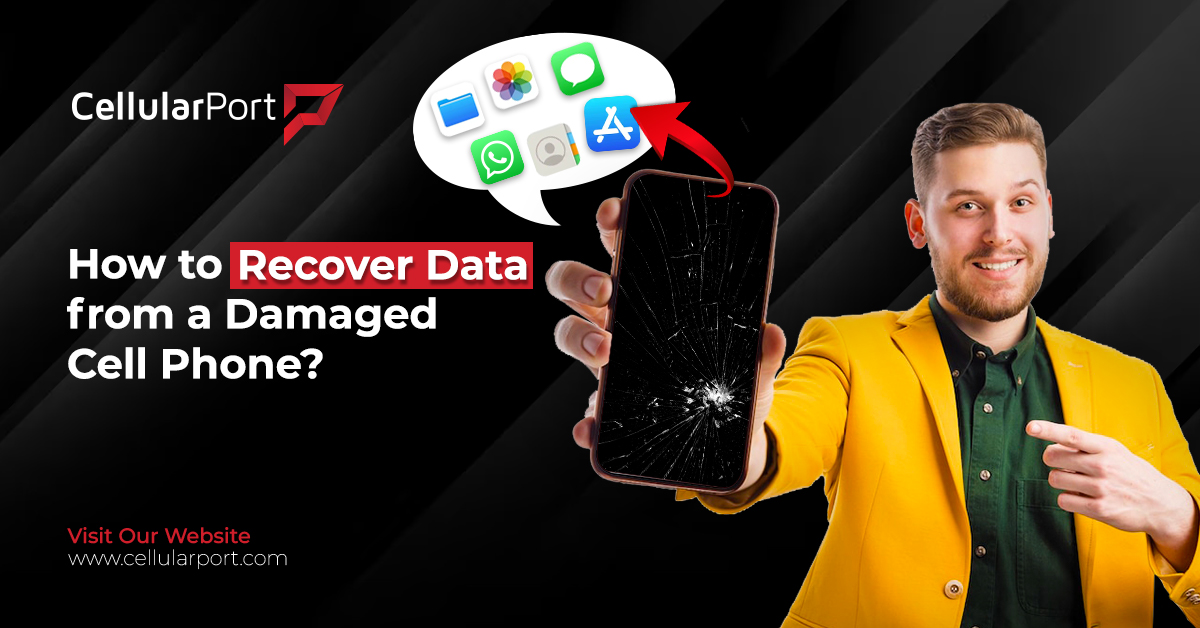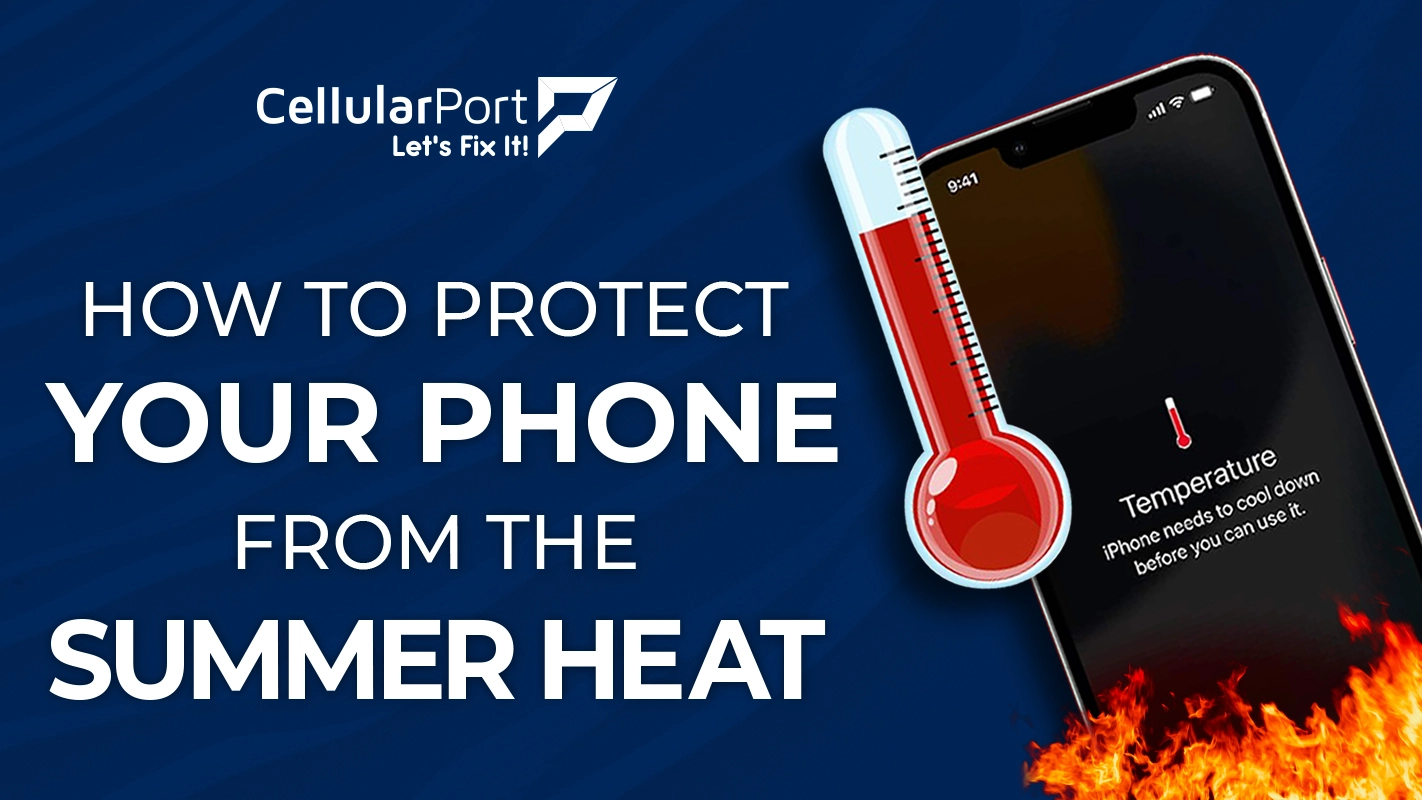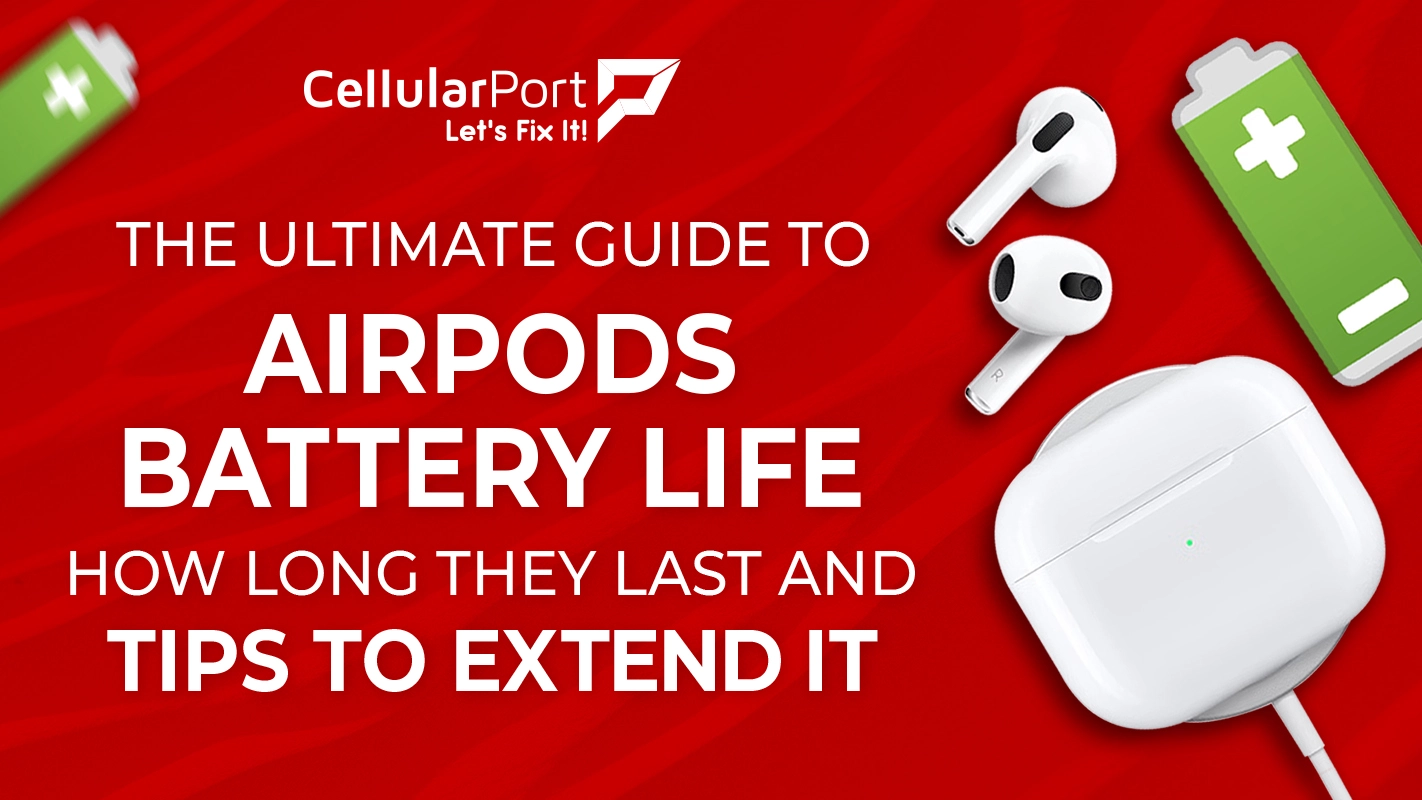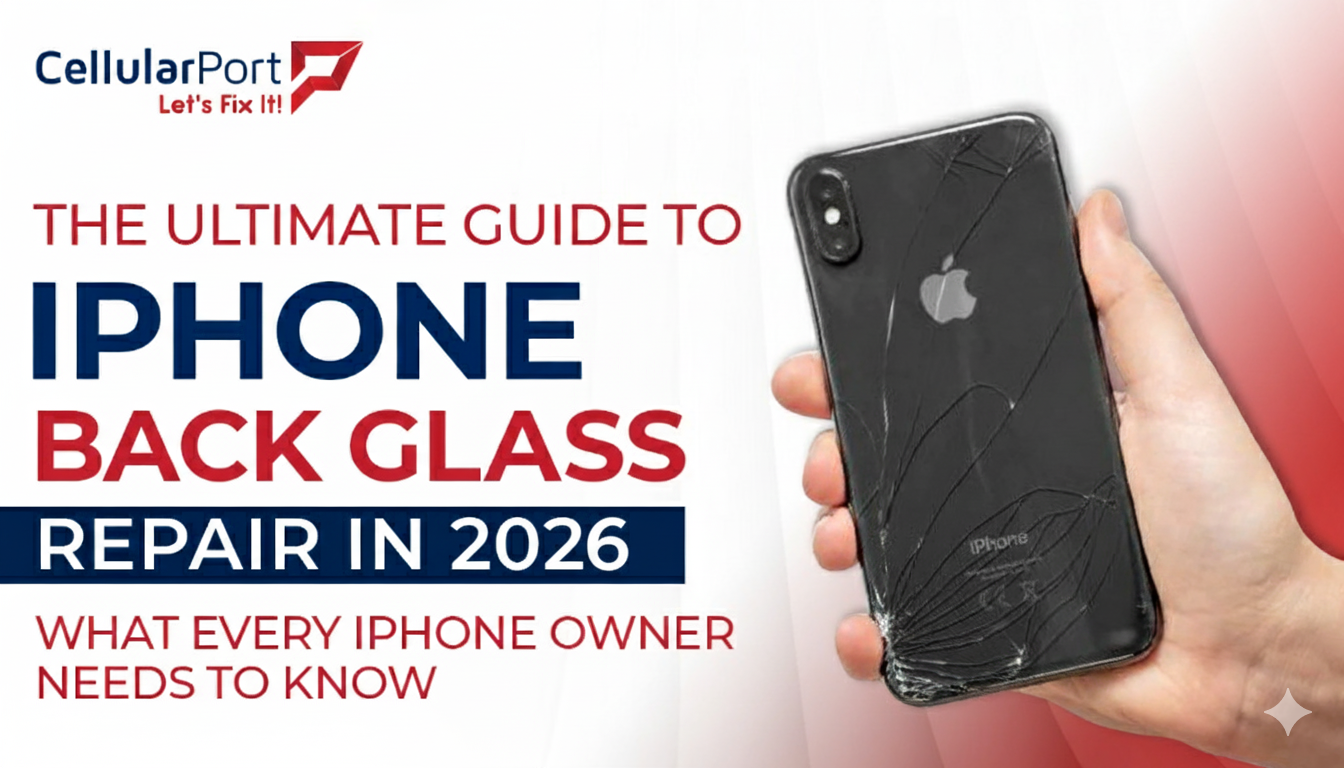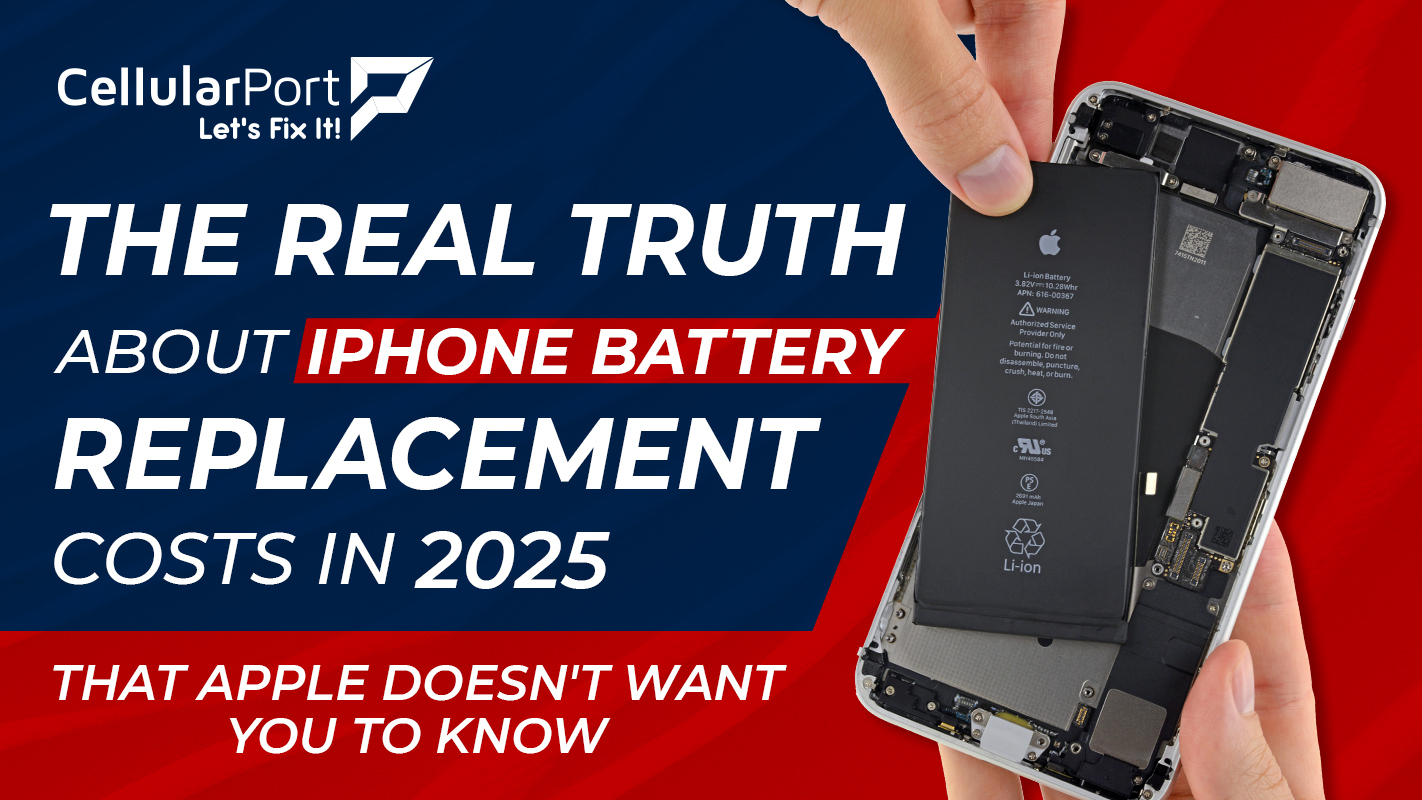You must have damaged your cell phone and now you are wondering about all the cherishing pictures, valuable videos, important docs, crucial messages, and in short, your dear data right? Well, first things first – you need to calm down. You can actually recover your data from a damaged cell phone no matter if it has just received a massive dive in the water or a terrible fall from the 12th floor. Now, you must be wondering how! And the answer is pretty simple.
All you have to do is read this essential guide in which we have taught you how to recover data from your damaged cell phone. Don’t wait for another damage, make sure to give this blog a keen read to get your data recovered easily. Let’s begin!
Step 1: Assess the Damage

The first step in the data recovery process is to assess the extent of the damage to your cell phone. Understanding the nature of the damage is crucial as it determines the path to recovery. As WikiHow stated:
“You can most likely recover your data from your broken phone if you used some form of back-ups like iCloud, Google Drive, or Samsung Cloud”
So, if you have already got some backups then it would be easier for you to get all your data back.
Identify the Type of Damage
Begin by distinguishing whether the damage is hardware-related, such as a broken screen or water damage, or software-related, like accidental deletion or data corruption.
If your phone has suffered physical damage, it’s advisable to seek professional repair services, as this type of damage can hinder data recovery efforts.
On the other hand, if the damage is software-related, you can often recover the data using data recovery software.
Take Steps to Prevent Further Data Loss
Regardless of the type of damage, it’s crucial to power off the phone immediately to prevent further harm to the data. If possible, remove the battery and refrain from attempting to use the phone until you’ve assessed and repaired the damage.
Step 2: Ensure Data Safety

No doubt, data safety is the first and foremost thing. Before diving into data recovery, check if you have any existing backups in place. This will save you precious time and eventually, you’ll have to face less chaos.
Check for Backups
Examine your cloud backups or computer backups. Services like iCloud for iPhones and Google Drive for Android phones may have your data stored.
If you lack backups, consider using data recovery software to attempt the retrieval of your data. At this point, if you realize that your data isn’t secured you can consider visiting any tech repair stop but beware of one fact some tech repair stops might end up stealing your data. Yes, we are not even kidding. Make sure to read our blog “Can a mobile repair shop steal your data” to get more knowledge on this devastating reality.
Step 3: Use Data Recovery Software
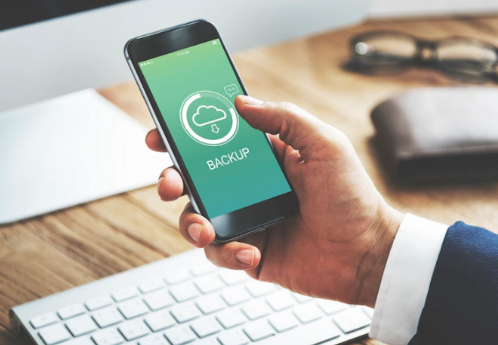
When it’s time to employ data recovery software, choose the right program for your needs. But, according to Android Authority:
“The safest method to extract data from a damaged Android device is to connect an external display via a USB-C to HDMI dongle. In most cases, you’ll also need to connect a keyboard and mouse to control the device”
Also, Cloudwards mentioned in one of its articles:
“If you don’t have an SD card or you really need something that wasn’t saved to it, you’re going to need some data recovery software that works without USB debugging”
Numerous data recovery software programs are available. Select a program compatible with your phone’s operating system and tailor it to the type of data you wish to recover. Follow the software’s instructions to scan your phone and initiate the data recovery process.
Here is a list of some data recovery software that you can use to recover data from your damaged cell phone:
Dr.Fone for Android/iOS
Dr.Fone is a comprehensive data recovery tool that can recover data from a variety of devices, including Android phones and tablets, iPhones, and iPads.
Disk Drill
Disk Drill can recover data from a variety of storage devices, including hard drives, USB drives, and SD cards.
EaseUS MobiSaver for Android
If you are an Android user then EaseUs MobiSaver is made for you. It is designed to recover data from Android devices
iMobie PhoneRescue
To all the iPhone users, don’t get disheartened as we have software for you too. iMobile PhoneRescue will help you in recovering data from your iOS devices.
Step 4: Seek Professional Help
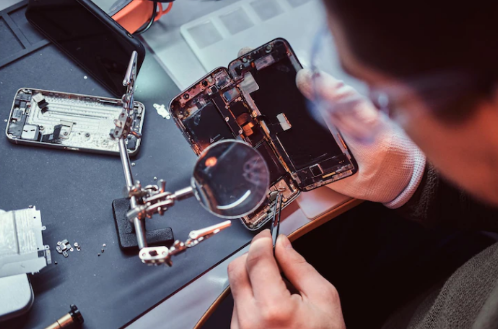
In some cases, professional assistance may be necessary, particularly if the damage is extensive or if software solutions prove ineffective.
If your phone’s damage is severe or if data recovery software fails to yield results, it’s advisable to seek out a reputable data recovery service that specializes in mobile devices just like CellularPort. These professionals possess the tools and expertise required to recover data from damaged phones effectively.
What To Expect When You Seek Professional Data Recovery?
When you opt for professional data recovery services, be prepared for the following:
- Experts will assess your phone’s damage and determine the feasibility of data recovery.
- If necessary, they will repair the phone’s hardware to make it functional.
- Using specialized tools, they will extract the data from the phone’s storage.
- The recovered data will be transferred to a secure storage medium or provided directly to you.
Step 5: Review and Secure Data

After your data has been successfully recovered, take the time to review it and ensure that all necessary information has been retrieved. To safeguard your recovered data, you need to transfer it to a secure location like move it to an external hard drive or cloud storage to increase its security.
Talking about data security, how can we forget our own security right? So, if your phone has suffered from screen damage don’t use it again instead get it fixed first because the Risks of using phone with a cracked screen are extremely high. SAFETY FIRST!
Step 6: Prevent Future Data Loss

To avoid any hide and seek with your data in the future, you need to be take some significant steps. Here’s how you can minimize the risk of future data loss:
Set Up Regular Backups
Establish a routine for backing up your data, utilizing cloud storage, an external hard drive, or a combination of both.
Take Protective Measures
Invest in a protective case and screen protector to safeguard your phone from physical damage. Keep your phone’s operating system and apps up to date to reduce the risk of software-related issues. Additionally, organize your data and delete unnecessary files to minimize data exposure to potential risks.
Final Verdict
In conclusion, recovering data from a damaged cell phone may seem like a daunting task, but with the right steps and tools, it’s entirely possible. You need to act swiftly but carefully to maximize your chances of retrieving your cherished photos, important documents, and vital messages.
By following these steps and prioritizing data safety, you can successfully recover your data and minimize the risk of future data loss. So, don’t despair if your cell phone meets an unfortunate accident as this guide might come in handy. We know that your data is worth the effort! Also, feel free to share some special data recovery tips from you in the comment section as we would love to hear from you.
Read More Relevant Blogs
- Spilled Coffee on Your Laptop? Here’s What To Do
- Don’t Throw Away Your Cell Phone! Here’s How to Fix It – CellularPort
- iPhone 15: A Game-Changer or Just Hype? A Comprehensive Overview of the Rumored Features
